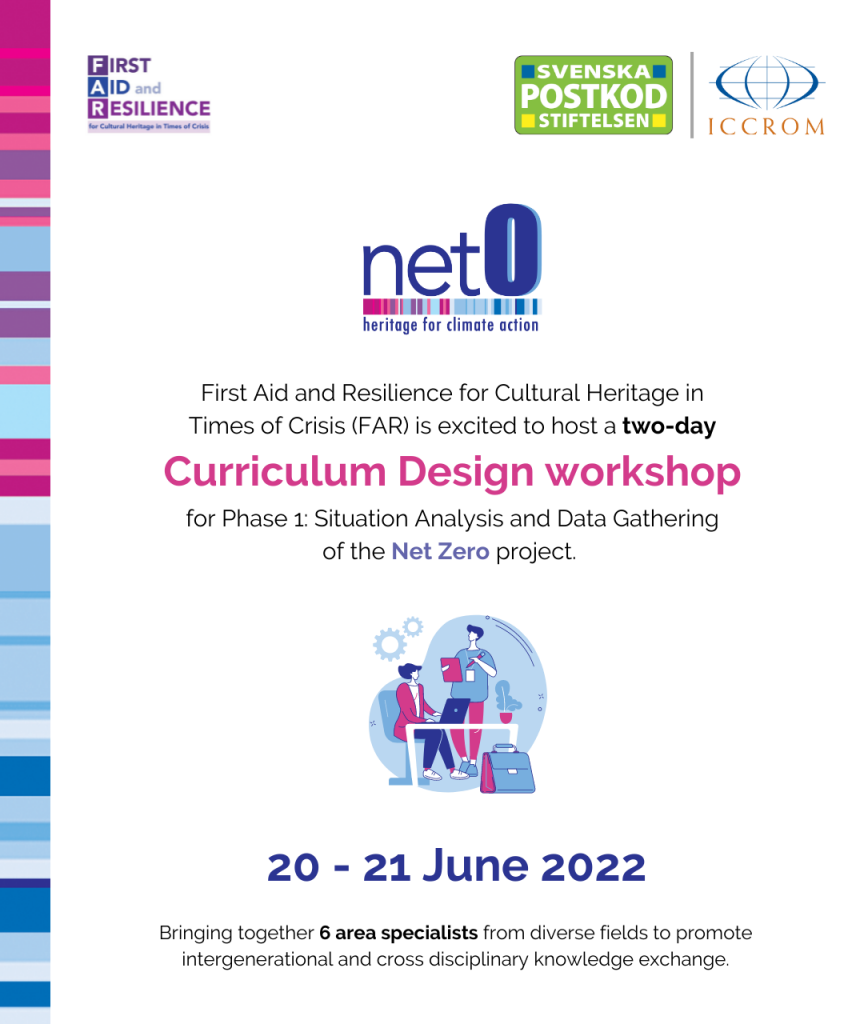Curriculum design workshop fosters intergenerational and cross-disciplinary knowledge exchange
The First Aid and Resilience for Cultural Heritage in Times of Crisis (FAR) programme of ICCROM is excited to host a curriculum design workshop for its ongoing capacity development project – “Net Zero: Heritage for Climate Action.” The two-day workshop will take place 20-21 June 2022.
Intergenerational and cross-disciplinary knowledge exchange are crucial for heritage-based climate change mitigation and adaptation. The workshop will bring together a team of six area specialists from diverse fields such as disaster risk reduction, climate and environmental science, urban planning, humanitarian and development aid, peacebuilding, as well as anthropology. The specialists are drawn from FAR’s alumni network, which spans over 87 countries, as well as the 55 partner institutions that collaborated with the FAR programme’s international conference, Climate.Culture.Peace, a knowledge-building initiative that aimed at exploring the interconnections between culture, climate change, peace and disaster resilience.
The Net Zero project received over 45 proposals from more than 23 risk-prone countries. A range of specialists from partner institutions comprise a multidisciplinary selection committee, which will interview shortlisted applicants to select the final five innovation sites.
Together, the multidisciplinary team will draft the programme structure for Phase 1 of the Net Zero project that foresees a detailed Situation Analysis and Data Gathering. In this initial phase, teams from the five selected innovation sites will: conduct community-based vulnerability and capacity assessments for heritage; map hazards and collect climate variability data; collect place-specific oral histories to piece together climate stories; and learn how to cross-link data across fields to identify climate-related disaster and conflict risks for people and heritage.
The two-day curriculum design workshop will begin by introducing the shortlisted project proposals to the team of area specialists. Subsequently, the team will engage in focused discussions to recognize key areas or aspects relevant to each innovation site. Furthermore, the specialists will outline the contents of the introductory online workshop, Phase 1: Situation Analysis and Data Gathering, as well as identify relevant tools for gathering, analyzing and visualizing different types of data at the innovation sites.
The methods and tools developed during implementation will help build a training model. It will also help kickstart a series of similar initiatives in the field, as well as bridge the gap between climate pledges made by national governments and existing capacities on the ground.
The training model and outcomes of the Net Zero project will be documented through reports and videos and later disseminated through an international symposium to inform policy and practice in countries most affected by climate change.

